#digital sharecropping
Text
Supreme Court Justice Ketanji Brown Jackson’s marriage to her husband and familial history was dissected by The Washington Post in an article from Monday about slavery.
The article was headlined, "Ketanji Brown Jackson’s ancestors were enslaved. Her husband’s were enslavers," and detailed the ancestral history of slavery and enslavement in the families of the justice and her husband, Patrick Jackson.
"When John Greene, believed to be an ancestor of Supreme Court Justice Ketanji Brown Jackson, got off a schooner from Trinidad in Charleston, S.C., he was immediately enslaved and dispatched to a plantation, according to family lore. When John Howland, the 10th-great-grandfather of Jackson’s husband, Patrick Jackson, disembarked the Mayflower at Plymouth, Mass., he was given housing and several acres," The Washington Post wrote.
The Post continued to scrutinize the Supreme Court justice and her husband’s family history, drawing parallels between the two that date back over 100 years.
"Ketanji Brown Jackson, one of the country’s nine most powerful legal arbiters, tracks her family history through generations of enslavement and coercive sharecropping. Patrick Jackson, a gastrointestinal surgeon in D.C., counts among his ancestors King Edward I of England, four Mayflower passengers and a signer of the U.S. Constitution."
The paper cited Christopher C. Child, senior genealogist with the New England Historic Genealogical Society in Boston, who found that Patrick Jackson's "great-great-great-great grandfather Peter Chardon Brooks was the richest man in New England when he died, having made his fortune insuring ships, including some involved in the slave trade."
In addition, the article explained, "Patrick was raised outside Boston, but his maternal grandfather’s ancestors lived in the South. Based on public slave schedules from 1850 and 1860, Child estimates the family owned about 189 enslaved people at the time. ‘Every male ancestor of Patrick’s maternal grandfather over the age of 21 alive in 1850 or 1860 was a slaveowner,’ Child said. One of his ancestors was also a Confederate soldier."
Florida Gov. Ron DeSantis’ press secretary, Jeremy Redfern, shared the article with his over 49,000 followers Monday.
"What an insane premise to discuss someone’s marriage," he wrote. It’s ‘She was oppressed. He was the oppressor.’ Even though neither of them have anything to do with what their ancestors did over 150 years ago."
Some of Ketanji Brown Jackson’s family members were reportedly unconcerned about the over 100-year-old history of her husband’s family.
"We had two people who loved each other, and that was enough. You can’t rewrite history. It is what it is," Ketanji Brown Jackson's uncle, Calvin Ross, reportedly told The Post.
The justice herself referenced both her and her husband's backgrounds in a 2017 speech, according to The Post. "We were an unlikely pair in many respects," she said in a 2017 speech, "but somehow we found each other."
Neither Ketanji nor Patrick Jackson responded to interview requests from The Washington Post, according to the article.
Fox News Digital has reached out to the Supreme Court for additional comment but has yet to receive a response.
13 notes
·
View notes
Text
Pejoratively Performative
Cotton became the book,
the syllabi a field, and the school
a sharecropping plantation.
When books designed to “disrupt hierarchies within education” cost $150 in hardcover and $50 in paperback and digital EPUB, it reminds me of the forefathers who wrote the Amerikan constitution while enslaving my predecessors.
On the highway to emancipation and transcendence, I’d sincerely appreciate it if you counterfeit snake oil education marketers could properly label the ingredients of your spiritual discordance.
You are not a facsimile of a Rembrandt artifact; instead, you are more analogous to Juneteenth paraphernalia sold on Amazon by Ashkenazi Jews.
0 notes
Text
Tumblr removals, and the dangers of digital sharecropping.
Soooooo I first wrote a blog post back in 2014 for an employer, and while some of the data might be old now, and it references facebook instead of Tumblr, I think a lot of people might benefit from the core message. So I’m reposting it here.
You might have noticed a trend in your Facebook News Feed lately, namely fewer cats and more articles. This is part of a concerted effort by Facebook to display high-quality content more often, and minimize randomness in the feed. At the same time Facebook has decided that users don’t want to be overwhelmed with updates from brands. So how do you reach current and potential fans when Facebook changes the algorithm?
Stop Treating Facebook As The Destination
“Digital Sharecropping: The Most Dangerous Threat to Your Online Marketing” – Sonia Simone, Copyblogger
“If you don’t have a website, your business will become increasingly invisible, until it vanishes altogether.” – Rieva Lesonsky
In 2014 only 53% of small businesses have a website and 37% of small businesses are using social media. While it seems, on the surface at least, that these businesses are engaging their customers, there are underlying problems as to where critical information is being published.
According to a 2012 report, 60% of small business websites did not list a phone number, 66% didn’t have a contact form, and 75% didn’t even list a contact email. When the bare necessities are lacking it is impossible to imagine that the percent who use social media are also posting regular information to their website. So where are they, and you, posting?
If all your information is going to social media sites such as Facebook and Twitter it is called digital sharecropping, and can be detrimental to your business.
“What is Digital Sharecropping? – Quite simply, digital sharecropping is the act of using a third party platform to publicize your brand.” Steven Shattuck – Social Media Today
With an audience of 1.26 billion people, it is no wonder that many brands consider a Facebook presence essential to their marketing plans. However, it cannot be the only online outlet for a business. The largest danger of digital sharecropping is that you, as the business owner, have no control over the rules. When Facebook changes the algorithm, or worse if your page gets shut down, you have little recourse to reach out to customers.
The closest analogy is renting versus owning. Just as your business is adversely affected if a landlord raises the rent, so too are you affected if a third party site changes the algorithm.
Your office or retail location is the physical “home” of your business; similarly, you need to have a digital home as well. Facebook, Twitter and Google are merely paths that lead to the door.
Focus On Content First
Having a website is a start, but you need to give people (and Google) a reason to keep coming back. Just as you would stop buying the newspaper if it started to run the same articles every day, you want to present people with a reason to visit your site on a regular basis. An official blog is probably the single easiest way to consistently add fresh content to your website. But what should you post?
It is said that in the digital age, everybody is a publisher. Think about that then ask yourself: What am I saying?
Think about your own online habits for a bit. Amidst the photos of cute animals, memes and conversations with friends and family, you’re probably consuming a lot of content. News articles, entertainment, advertisements and advertorials all fall into this category. Of these, which are you most likely to enjoy? The question may seem silly at first, but remember that your content will be in the same pool as everybody else’s. You need to provide something that your users will want to read.
That’s not to say that you can’t talk about your product, but you will want to give visitors more than the copy on the sales page. Invite them to learn more about your wares by giving insights into the ideas behind their favorite items. Post announcements of upcoming events, or give a shout out to exceptional employees. Instead of asking “what should I post”, make the question “what should I post first.”
Facebook Is A Social Network, So Be Social
“Keeping your posts below 250 characters can get you 60% more engagement than you might otherwise see. You can even get up to 66% more engagement if you cut it down to less than 80 characters.” – Buffer
When people visit Facebook they are looking for easily digestible tidbits of information. Your blog still has a place here, but it is handled with a teaser, an eye-catching photo, and a link to where it lives on your website. Your fans will appreciate the brevity and, as people click, your website will start to be the digital home that it needs to be.
Now that you’ve established your blog as your publishing platform you can use Facebook for what it is: a social platform.
By moving the bulk of your valuable content to your own website, you have also created an opportunity to bring levity to your Facebook page. Engage your fans by interacting with them, post insights that might not be enough for a blog post of their own, but brings the human face of your business to your fans. Share news and information that you think your fans will enjoy. Instead of selling to them, have a conversation.
Finally, now that your page is social focused rather than sales focused you can broaden your network further. Give shout outs and credits to other companies as well when appropriate. Did you just hang a new painting in your office? Share a photo and tag the gallery or artist. Did you hold a catered event that a restaurant handled expertly? Once more, tag them in posts and photos. By showing that your business is part of a community, rather than an island unto itself, you help to build and strengthen social connections.
If after reading this you’re considering moving to a dedicated website, but don’t know where to start, contact me. If I see a lot of people asking the same basic questions I can answer some things in asks.
If you decide you need help moving your content to your own domain, we can come up with a price to export to an existing website, or start a new wordpress website and import your tumblr blog history.
1 note
·
View note
Text
Juneteenth
STORY by Team at Archewell
Jun. 16, 2021
YOUNG POETS OF GET LIT SHARE POWERFUL WORDS TO COMMEMORATE THE DAY
In honor of Juneteenth, we, at Archewell, connected with our friends at Get Lit and asked them to share poetry to honor this important day. We hope their poignant words allow you to reflect on the significance of this newly declared federal holiday in the United States and its impact across this country and around the world.
AND HOLD, AND HOLD
CORTUNAY MINOR AND TAMIA JACKSON
youtube
WHY THEY WROTE THIS POEM:
“When I wrote this poem, just a few weeks before June 15th, Juneteenth wasn’t yet a federal or national holiday. It wasn’t something I’d given much thought to, but when I had recognized that fact, it wasn’t information, it was confirmation. At first, I was upset about it. My immediate thoughts were along the lines of, ‘Where are our fireworks? Where’s our three-day weekend?’ But in reflection, I realized that this was demonstrating continued deference to a supposedly superior entity. Juneteenth isn’t the ‘Black Independence Day,’ it’s the only Independence Day. To have that nationally recognized feels amazing. But whether or not the date is printed in every calendar does not validate this holiday. We do.”
WHY SHE ANIMATED THIS PIECE:
“This poem, especially for Juneteenth, really inspired me. The color palette expresses the somber yet hopeful emotions that happen when black freedom is discussed, and what it means to be a Black individual in America. This poem as well as the visuals really emphasizes the impact that Black people have by simply existing, and the importance of our breath. We know that as long as we’re still breathing there can and will be change, and ultimately full freedom.”
ABOUT THE AUTHOR:
Cortunay Minor (she/they) is a performing artist who specializes in Stage Acting and Spoken Word Poetry. They are currently pursuing a bachelor’s degree in Theater from the UCLA School of Theater, Film, and Television. The theme and goal that Minor tries to hold in the heart of their artistry is liberation, be that emotional, intellectual, or otherwise. Expression and education are two of the most fruitful paths Minor has found that achieve that liberation, and she is immensely grateful to be able to participate in a craft that allows their simultaneous occurrence.
ABOUT THE ANIMATOR:
Tamia Jackson (animator) is a rising senior at the Rhode Island School of Design, receiving her BFA in Film/Animation/Video with a minor in Literary Arts and Studies. She has always been passionate in art, animation, and storytelling. She loves bringing stories of lesser voices, such as BIPOC, low income, female, etc., into a visual and cared-for light. Though not all of her stories or animations revolve around such identities, it is important that she shows diversity so that many people can relate and find comfort in the characters or art piece. Not only does Jackson enjoy spreading her own voice, but she also loves bringing others’ stories to life.
AND HOLD, AND HOLD
‘Holiday’ meaning ‘Holy Day’ meaning:
every second is sacred/every hour hibernates
within the spirit, huddled beneath the bosom.
To breathe is to commemorate:
inhale – exhale – cradle the thought – hold – and repeat.
When daybreak demotes breath to subconscious action,
the diaphragm still submits in reverence, still remembers that
This is Divine. This
is where jubilation begins:
in the suspension of
breathe in – breathe out – take maybe – and
forever hold the moment,
where the deferred dream stopped shriveling,
wavered in anticipation, remembered that expansion
can be soft,
recognized that it didn’t want soft
expansion.
Bodies were policied out of possession, but
the Black individual liberated their own being,
hollered themself out of state-sanctioned silence.
Words ignite, but presence sustains; this intake/expel maintains us
here
the dream explodes. The spirit absorbs the remnants and outpours,
‘holiday’ meaning ‘Holy Day’ meaning:
I hold this day as sovereign. Meaning:
I hope this day knows its home is in these lungs,
is in this breath, is in the repetition of:
inspire – expire – immortalize the memory – and hold – and hold – and release
POPLAR TREES
CYRUS ROBERTS
youtube
WHY HE WROTE AND DIRECTED THIS POEM:
“It’s easy to say “slavery was an atrocity and we need to do better” but it’s much more difficult to say “slave masters ripped babies from their mothers and used them as crocodile bait for sport.” In the average American lexicon, phrases like ‘Never Forget’ are commonplace but are rarely attributed to periods of fundamental, ongoing violence of a racial nature for the simple fact that our pain makes the people who benefitted from that pain uncomfortable. For me Juneteenth is a day of mourning; the Confederate holidays still celebrated today seem like a gruesome counterbalance. So this is my eulogy to both the country and my own being that could have been.”
ABOUT THE AUTHOR:
Cyrus Roberts (he/him) writes, acts, and directs across poetry, theater, and film. While his work has been commissioned by organizations like Toms Shoes, Adidas, and March For Our Lives, he also enjoys working on cool independent projects, whether he’s self-publishing poetry compilations, creating movies with friends, or acting in his own plays. Roberts is currently a senior in UC Santa Barbara’s BFA Acting program. Look for him in the upcoming film Summertime, directed by Carlos Lopez Estrada. His assistant director on the project was Mattie Kranz.
POPLAR TREES
Before you there was me. But before me there was (Nina Simone audio: “black bodies swinging”). And that was the gentler time period. Everything base within you, reflected in your actions. Please don’t censor me when I mention how you wrangled our teeth from our mouths and used them to seduce your own illnesses into submission. Or how you took an interest in the skin that had a monopoly on sunlight and then took what you wanted underneath the moon. Or how you used our babies as crocodile bait and our skin as shoe leather. Look right into the eyes of our demise and try to say those times are past, that I’m being rash, that I’m being bad and so full of woe and I should be glad I’m writing this on my MacBook Pro. Yeah? Who am I to complain about slavery? Because it ended, right? On June 19, 1865, Union Army general Gordon Granger made his way to Texas and proclaimed slavery’s supposed fall and us colored folk supposed to have a ball? I mean it was two and a half years after Lincoln already announced it, but we needed a white man to tell other white men what another white man already said. I mean that is until that white man found himself dead and Reconstruction found itself at a head and chain gangs, sharecropping, Jim Crow, private prison options, perc popping, bodies dropping, cops still stopping, guns cocking to ensure that (Nina Simone audio: “black bodies swinging”). Every 19th of June we celebrate the end of chattel slavery and every 20th we’re back to fighting its descendants. Private prisons / a cop’s knee is a modern lynching / it ain’t my decision to get busy dyin’ or busy living / I paid attention, to all the digitized depictions / all the people packing up pensions while we’re backed up by the system. Put your back into the system, this is wack how mother’s missing their babies kisses and I’m supposed to be celebrating? I’m sorry. Will you forgive me, I’m jaded. My grandmother looks at me and says confidently that I made it. That she can’t possibly imagine the life that I’m living, I owe a debt to her generation, and I hope that I pay it. I just get so angry, hazy laughter at the thought of thoughts and prayers ending enslavement. So after you hear me, I’ll forgive you if you’re jaded. But you still need to know the history to have an appreciation. It’s no mystery why it’s a mystery present in our education, presently the gatekeepers keep us from it and it’s heinous. On Juneteenth, Americans across the nation eat red foods in honor of the blood spilled before and during emancipation, we celebrate the secondary, pushed-to-the-side independence day, but you don’t have to know our proclamations of jubilation for us to be heard. We will be heard in our voices screaming thanks that we are not treated as herd. We dance and we sing hymns of freedom. Freedom: absence of subjection to foreign domination or despotic government. Are my brothers and sisters in jail cells free? When there’s a glaring loophole in the 13th amendment smiling from cheek to cheek I’d imagine there’d be some incentive to ensure our purity is never free. And how can I be free when I can’t sleep because my dreams keep whispering I can’t breathe. Regardless of that fact, progress is still being made. But I fear progress is just an exchange of chains for other chains. Same way they changed our names for other names, I rest a bouquet on the graves of enslaved, singing regardless this day. In the hopes that I never again have to see (Nina Simone audio: “black bodies swinging”).
UNTITLED
SIERRA LEONE ANDERSON
youtube
WHY SHE WROTE THIS POEM:
“When writing this poem, I really made an effort to think back to my ancestors. What was their impact? Who did they inspire? How did they carve the path for the road I now choose to take? This poem is about legacy. I am calling back to the ancestors before me to give me the strength and courage to be the ancestor I want to be to future generations.”
ABOUT THE AUTHOR:
Sierra Leone Anderson (poet) is a youth activist and professional spoken word artist from Los Angeles. Rooted in liberatory joy and armed with ancestral truth, Sierra Leone aims to bring light to the power of language, empowering Los Angeles youth of color to recognize the quantifiable influence of their voice. She has placed both second and first in Get Lit’s annual middle and high school Classic Slam respectively, co-wrote an article for the political column of USA Today, and has shared space with several influential changemakers including Dr. Melina Abdullah (co-founder of BLM-LA) and Cecily Myart-Cruz (president of UTLA). Her other organizing work includes collaborating with Students Deserve LA to make Black Lives Matter in and beyond schools. She is currently a ninth grade student at Girls Academic Leadership Academy and an avid lover of trashy teenage dramedies.
Her director and editor is Lukas Lane, an award-winning filmmaker and founding member of Literary Riot (started in his junior year of high school), and he is currently attending UC Berkeley.
UNTITLED
Every generation, the world gives birth to a new fleet of freedom fighters.
I am one of them.
I stand on the shoulders of tired women.
I dance in the footsteps of Pan-African poets, liberation fighters, and Black writers
who grew fires from a pit hungrier than a stomach. They call my name and I call theirs.
Malcolm X. Phyllis Wheatley. Maya Angelou. Sojourner Truth. Audre Lorde. Ida B. Wells.
Your resilience rivers through me. You are my founding fathers. The blueprint to a world we need to be brave enough to see, to seek.
Let us imagine a world in which we know each other’s palms
and never the fist. Not unless needed. Not unless united together.
Let us be the drum and not the war.
Let us know each other’s names and not the languages we cry in.
Let us be, let all us be more than a slave’s wildest dream
Let us beam past blueprints and what-ifs and start becoming the now we want to see, the now we want to be
Trees growing so far past the Earth, Allah would mistake our bodies for angels.
When I die, I want to ripple through lifetimes. I want my name to graffiti the mouths of the next 10 generations.
I don’t want to be forgotten. Or remembered for the way my feet wouldn’t stop running.
I wanna grow roots in this soil, in this American skin. Join the forest of my ancestors. Let my grandkids climb up my branches and tell stories of school.
And before the first pulse of morning, I want them to drip from their homes and gather at my roots.
I want to tell them my name before I forget it.
I want to tell them that morning is coming. And will always come. And will never wait for when you are ready.
I want to tell them that there is a point far beyond this tree, this forest, this temporary point in time, their bodies, their fears, their fathers, their memories. Where the sun is eternal and smiling. Where freedom rings and is never silent, never out of reach. It is called horizon. And it is right there.
#juneteenth#archewell#sierra leone anderson#cyrus roberts#cortunay minor#tamia jackson#get lit#poetry#poets#Youtube
31 notes
·
View notes
Text
7 Types Of Alternative Investments

Many people are familiar with traditional investments such as bonds, stocks, and real estates, but not everyone knows about alternative investments. Alternative investments are a great addition to an investor's portfolio. Most of the available alternative investments in the market provide significant returns compared to traditional ones. However, since there are several alternative investments in the market, this article will explain some of the best ones you might consider investing in.
Cryptocurrency
Cryptocurrency belongs to the top alternative investments. Before you jump into cryptocurrency as one of your alternative investments, you should understand first how it works, and you should only invest money that you are not afraid to lose. Never invest in anything that simply trends on social media. Digital currency has swept the media headlines in the last two to three years. Although some of the hype has slowed down, it's still alive and well. There are no regulations currently, and the volatility can be pretty wild, but this industry might stick around and improve in the years to come. If you do go this route, invest with caution.
Jewellery
Jewellery is another option, which any alternative investment management specialist may recommend. If you don't have several investments, jewellery is a great way to add to your portfolio to focus on it. However, this is not an easy choice. You have to know the market and other things to look for when jewellery is involved.
Tax liens
If you are not handling any investments or don't have an alternative investment management platform, you should consider investing in property tax liens. Tax liens happen when the property owner fails to pay their taxes. Investors can buy the liens in an auction, paying the amount of taxes owed in return for the right to collect back that money, plus an interest payment from the property owner.
Structured settlements
One of the best alternative investments is a structured settlement or a financial agreement settled for a plaintiff in a personal injury claim or similar lawsuit. Payment plans in structured settlements can vary on a case-by-case basis. For example, some may require a lump sum upfront, where others require smaller amounts over a long period. People use this as an alternative investment by paying for some or all of the structured settlements to share the premiums. People see structured settlements as alternative investment opportunities because they are guaranteed by court-ordered contracts and highly regulated by insurance companies. Investors are entirely dependent on the payment schedule, making illiquidity a concern if the need arises to sell long-term holdings.
Farmland
One unique alternative investment is farmland. Investors see farmlands as alternative investment opportunities because they are similar to real estates, where there are possible chances of land appreciations. Farmlands are affordable compared to real estates. However, you can also lease or sharecrop your farmland to make a profit. Since this is more of a niche investment, you'll want to work with a real estate professional specialising in farm and ranch properties. You'll also want to think about whether or not you're willing to take on a long-term project — most farmland investors wait at least five or so years before they start seeing potential.
Forex trading
One of the best alternative investments is trading pairs of foreign currencies. If you have experience in trading the stock markets, you should consider Forex trading. The only difference between the two is you are trading foreign exchange or currencies in the Forex trade market. Since currencies rise and fall in value against each other, you can profit by profiting from these fluctuations as an investor. Besides trading with currencies' pairs, you can also trade with CDFs. These are interesting instruments in Forex. They allow you to speculate on the currencies' potential future values without you having to buy them.
Peer to peer lending
This relatively new type of investment also comes with risks. The system works by connecting people who need to borrow money with people who have money to lend. The advantage of peer to peer lending is that no banks are acting as an intermediary, which makes your take-home amount higher. As a lender, you can get much higher interest rates than you would with a savings account. Borrowers usually pay less than with a traditional loan. The peer-to-peer platforms or websites also take a fee. In an ideal world, this system works for all parties involved. The risk lies with the borrowers. If they could not access a traditional loan and use peer-to-peer lending opportunities, they have a poor credit history or are not eligible for conventional loans.
You may think of these alternative investments as risky. However, all investments involve some risks, but alternative investments will diversify your overall portfolio risks. As always, this is a helpful tip that you talk with an investment advisor before investing any amount of meaningful money or if you don't know any investment knowledge.
#alternative investment management#best alternative investments#high return alternative investments#how to invest in alternative investments#alternative investment opportunities
1 note
·
View note
Link
Jerald Cooper is founder of the creative studio Things We’ve Made, and the man behind the Instagram account HOOD CENTURY with tagline: “Yes, there is mid-century modern design in the hood!”
“I was literally walking to the top of my childhood street, and just looked at this mid-century modern dead-on, and I was like: I don’t think people know about that!”
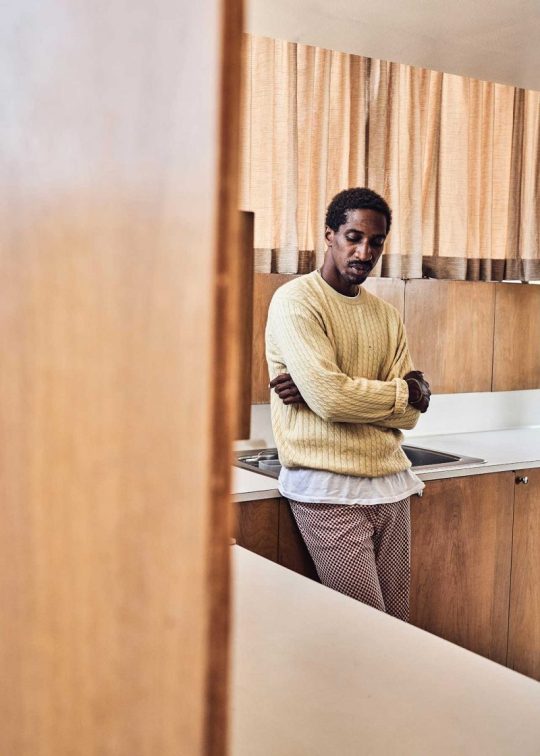
What is it about the HOOD CENTURY account that you think is resonating most with people right now?
Jerald: I do think I opened up an aesthetic look, like a thing, like a portal: Black bodies in modern settings. And I think I opened it up in a very interesting way, because every person who experiences modern, experiences modern differently. It’s an aesthetic it rips open: The Black body being in front of it is one rip, then my friends knowing that that is mid-century is another rip.
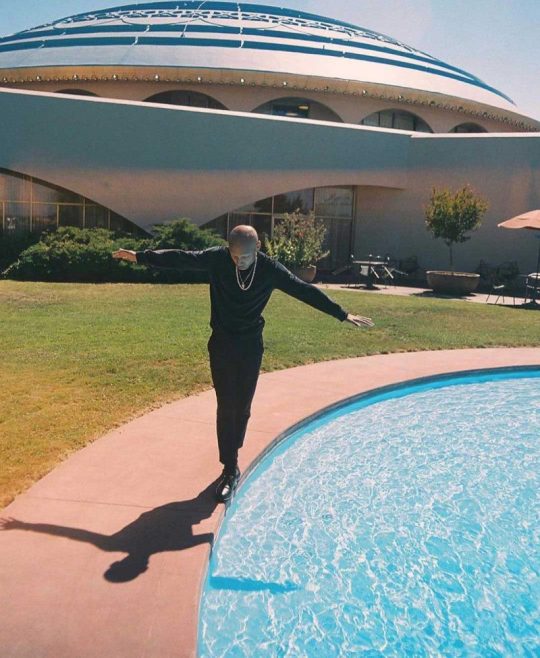
“The other day my church was getting knocked down – it sounds like a movie. It was a matriarchal place and I still get emotional about it. It was the place that we came in the ’20s and ’30s from Georgia – from sharecropping essentially – and it was the beacon; they went there like four or five times a week, they could go there to eat if they didn’t have anything at home. And it’s getting torn down for a soccer stadium. It’s a great fucking amazing spot for a soccer stadium, I’m not going to front. But they didn’t have the representation to properly negotiate an exit deal. To properly preserve the stuff. None of our stuff is digitized. The building should have been a historical preservation site – it was actually built in the mid-1800s – but I heard that the preservation society came by and said [no] since there was a modern addition to the church. I’m tired of that shit, you know? We’ve been getting bullied too much.
I want people to go outside in their neighborhood and look at shit that they have no business looking at. Go out and be nosy about your neighborhood. I’m like, ‘Ma, have you been down this street?’ She’s like, ‘No.’ I’m like, ‘You’ve lived here 40 years and you haven’t been down this street?!’ Curiosity has been killed in the inner city because of the violence. Our mothers would say, ‘Don’t be curious, don’t go around that corner, it’s not safe.’ And I didn’t understand that until I went everywhere, but could you imagine? Curiosity is the thing that all brilliant people have, and we are asking our kids not to be curious? That is so bad.”
read more: designmilk, 19.10.2020.
2 notes
·
View notes
Text
#1yrago How markets plundered Free Software's best stuff and used it to create freedom for companies, not people
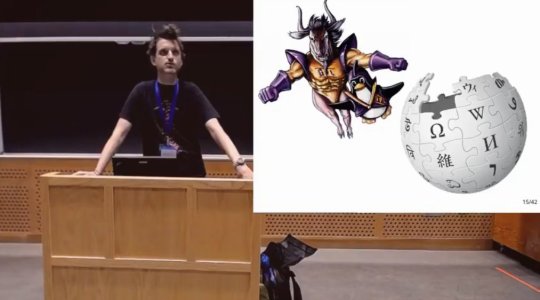
Bejamin "Mako" Hill (previously) is a free software developer, activist and academic with a long history of shrewd critical insights into the ways that free software, free culture and the wider world interact with each other.
In his keynote address to the annual Libreplanet conference, Mako traces the history of software freedom and how it changed when it met the forces of relentless commercialization and extraction.
Early free software advocates assumed that working on free software would be centralized and would be a kind of voluntary ideological project that would result in pay-cuts to programmers who wanted to ensure that users of programs got as much freedom as possible, and were willing to sacrifice to achieve this.
But markets discovered free software and turned it into "open source," figuring out how to create developer communities around software ("digital sharecropping") that lowered their costs and increased their quality. Then the companies used patents and DRM and restrictive terms of service to prevent users from having any freedom.
Mako says that this is usually termed "strategic openness," in which companies take a process that would, by default, be closed, and open the parts of it that make strategic sense for the firm. But really, this is "strategic closedness" -- projects that are born open are strategically enclosed by companies to allow them to harvest the bulk of the value created by these once-free systems.
So Android (GNU/Linux) is everywhere and Apple was forced by its users insistence on jailbreaking their Iphones to create the App Store and allow programmers to participate in its ecosystem. But both mobile platforms have figured out how to use strategic closedness to lock up users and developers and capture the value and assert control over the system.
Mako suggests that the time in which free software and open source could be uneasy bedfellows is over. Companies' perfection of digital sharecropping means that when they contribute to "free" projects, all the freedom will go to them, not the public.
This comes at the exact moment when the world is being devoured by software, and when software freedom is, more than ever, ineluctably bound up with human freedom -- in other words, it's a crisis of global and historic proportions.
Mako is calling on people to choose sides: to understand the moral dimension of software freedom, rather than its mere utilitarian benefits, and to commit themselves to human freedom.
https://boingboing.net/2018/06/21/digital-enclosure.html
14 notes
·
View notes
Text
9 Articles for Serious WordPress Publishers
If you are serious about using WordPress as a tool for publishing online content to drive traffic and build revenue for your business, start here. Minimize costs and maximize the potential for your success by learning some of the hidden expenses of WordPress management, as well as the pros and cons of everything from digital sharecropping to premium managed WordPress hosting.
1 note
·
View note
Photo




Soar through the History of Women in Aviation
You have probably marveled at the accomplishments and pondered the fate of Amelia Earhart, but have you heard of these high-flying female aviators?
Chinese immigrant Katherine Cheung (top center) was the first Asian American woman to earn a pilot’s license in 1932, from Los Angeles Public Library via California Digital Library
Ruth Bancroft Law completed a record-setting flight from Chicago to New York in 1916, gliding the final two miles of the trip after her plane ran out of gas! Image from the University of Texas at Dallas via The Portal to Texas History.
Born to a sharecropping family in Texas, Bessie Coleman became the first African American woman to earn a pilot’s license, specializing in daredevil stunt flying during her career. Image from The New York Public Library.
British Aviator Amy Johnson was the first woman to fly solo to Australia. This photo from the National Air and Space Museum via Smithsonian shows her after landing in Darwin, Australia.
Want to learn more? Visit our online exhibition, American Aviatrixes: Women with Wings, and explore our new browse topic on Aviation.
213 notes
·
View notes
Text
Facebook Wants To Host Your Blog
Facebook wants to host your blog and this means an entirely new publishing world for the smaller, independent writers
Facebook just announced they want to host your blog. Oh great news! Not only do they want to drive news outlets out of business, you can bet the small guys are going to struggle with this as well. They seem to be focussed on the big news operations so far but you know it’s just a question of time before they unroll this feature out to every “page” owner.
It’s called digital sharecropping.
When…
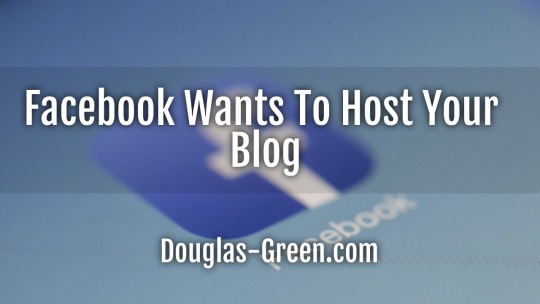
View On WordPress
0 notes
Text
A Heartbreaking Loss... How Are They to be Remembered?
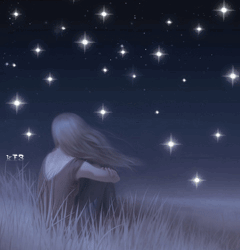
When a loved one leaves us, it never a simple process; emotionally or pragmatically... it’s always bittersweet.
Memories or stuff? A balanced healing usually involves both.
Recently, my wife has endured the tragic loss of her mother. Annie was the 92 year old, always smiling, brilliant ray of sunshine matriarch of a family that stretched from the Gulf Coast, to the Red River border and was firmly settled here is East Texas. She was the last of a family of twelve brothers and sisters and raised many of their children with her own as well. Her immediate family included two daughters, a son, their spouses, seven grandchildren and six great grandchildren. Her health had been relatively good considering her age and she still lived alone in a little house in Lufkin. The fact that she was 92 escaped no one, but her loving demeanor and country wit was still a constant; so we knew the inevitable was coming, someday, but she was still ol’ Annie. The inevitable came in June, in her sleep, in her bed in her little house in Lufkin ... where she wanted to be.
I’ve lost both parents and a sister as well as two close friends who were brothers to me. In truth, my family didn’t have the close, loving reliance that Annie’s did ... I’d venture to say that few do... Nancy, Frank and Kim deeply loved and looked to their mother. It puzzled me how shocked and in disbelief they appeared when the time finally came, but then again my family relationships weren’t as sweet as was based more on logic than emotion. The immediate events following her passing kind of took care of themselves: funeral home, viewing, service, burial. One hurdle had been passed, but the little house in Lufkin sat quietly, filled with a lifetime of photos, cards, letters, Knick knacks and other “stuff.” I wrote stuff in quotation marks as stuff seems a shallow word when referring to a lifetime of memories and accumulated items.

Annie grew up country and she grew up poor of this our families had similar stories. Both Annie and my father’s family had nothing. Dad’s family sharecropped and lived in a hard scrabbled cabin part of which had been hollowed out of the mountain. Annie grew up in the Pollock area to a farming family in a home that lacked running water or electricity. She was born two years before the Great Depression, so the ensuing calamity was not overwhelming... when you have nothing ...you can’t lose nothing. As a consequence, Annie grew up holding onto everything, not even close to a miserly mindset, she held on to memories in any form. Stories, songs, photos, birthday cards, Christmas cards, newspaper clippings, funeral announcements, anything and everything that shared an event that meant something to her. In front of my wife and her siblings stood the daunting task of going through a lifetime of collecting. Nothing was overlooked and a story followed almost every item. The three of them would stop through mid organizing and engage in a twenty minute stroll down memory lane when they would come across a picture and a query started. “Who is that with Annie and Uncle Marvin?” .... then it was on... talk, tears and laughter. The material things were easy: couches, freezers, refrigerators, tables ...those things weren’t the treasure; it was the stuff in frames, on walls and put away in old shoe boxes that merited the attention. My mind works differently as our family was different. It could be frustrating to watch them go through the items, but in a way I was jealous that they could share so intimately and vividly as they worked their way through the life of Annie Laverne Hall.
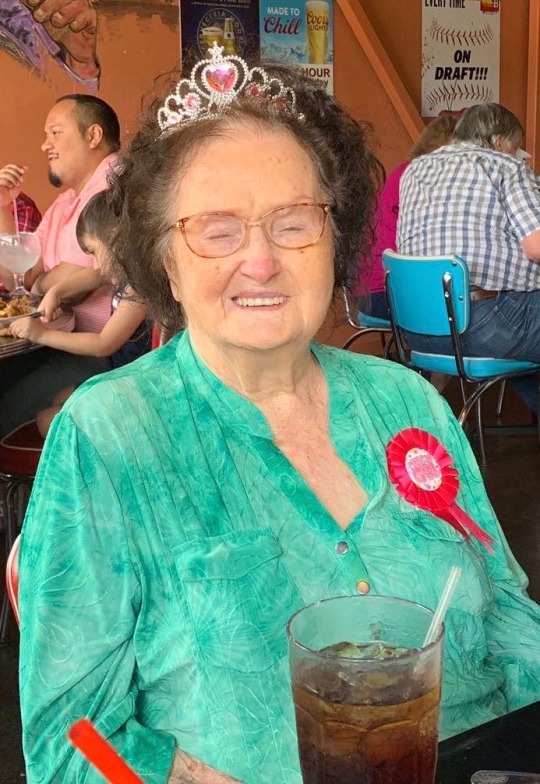
Now the crux of this writing: how are people best remembered? I’m an historian and I know that our lives are fleeting instants through a constant flow of an infinitude of instants. The answers to the question of how we should/want to be remembered are as numerous as the stars and are likely to be free of any right or wrong, but most of us will be faced with this dilemma more than once. There is no implication to be made that Annie was a hoarder at all. She lived with the images of her life in close reach. She also didn’t turn away from adventure to account for her holding on to items of her life; her children gave her a wonderful life of travel for a country girl from Pollock. She lived in West Texas and East Texas, visited the gulf coast, traveled to Miami, Branson, the Grand Ol Opry, took cruises to Mexico, ate at fine restaurants in Houston and Dallas. Annie got around and it is a great source of pride to her children that they could do this for her.
There is a philosophical change afoot here in America and worldwide that stands in contrast to the mad accumulation of wealth and things from the 80’s. Much of this change stems from the fact economically the disparity between the haves and have nots has grown strikingly. Still, we live, we want happiness, we want joyous memories... thus the philosophical move towards, “accumulating experiences instead of things ... stuff.” My wife and I for the last ten years have approached life with this intent on our mind. We travel as much as we can and bring back fewer and fewer souvenirs, instead, we come back with stories shared with friends over a bottle of wine. I was once one of the many of legions of guys who would bring out the slide projector with slides of our last vacation to entertain guests. Thankfully, the internet and digitalization has made this practice a rarity. Through much study, I’ve reached the personal conclusion that orally sharing stories with friends and family harkens back to the ancient ways of sharing memories over a fire and a sharing of strong drink. Trinkets were part of the process and provided much insight into the lives of the people. We’re not playing archeologists here, just discussing how best to preserve the experiences we gather along a lifetime.
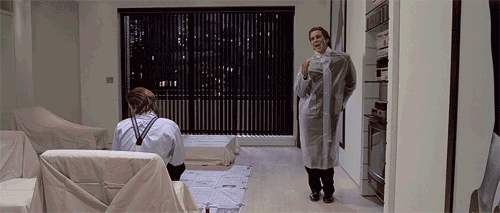
I have a couple of friends who took another approach: a concerted paring down of any material items. There are a number of reasons why one might take this approach: the previously mentioned experiences over things, a move away from mindless consumerism, a practice to be more environmentally sensitive all of which are sound reasons to “minimize” the tangible evidence of one’s existence. It need not be an extreme paring down on “stuff” most cultures live smaller and less ostentatiously focusing less on “keeping up with Jones’s.” There is an extreme to this path as negative as massive consumerism as I see took place with one of my friends mentioned previously. Without going into too much detail as this friend could create volumes of stories much like Annie. There was a feeling among many of this gentleman’s friends that it appeared as if he were removing himself from existence. His circle of friends became smaller and smaller, contact with family more and more rare. When he left this world, there was little left to prove he was here and fewer people who socialized with him on a regular basis. His choice... as I stated, the ways of being remembered are as countless as the stars. This approach, as valid as most others, I think comes from a place of hurt. As the saying goes, “no man is an island” and there obligations that many feel we have to stay a part of the lives of our families and true friends. There is always someone who needs us and they will remember if you were there or away.
Truth be told, the idea of remembering or being remembered can be a futile exercise in practicality and arrogance if pushed too far. All our hurts, worries, tears, adventures, laughter, loves all individually get washed away in what William Cullen Bryant called, “The Flood of Years.” Yet, that flood exists only with the countless droplets of living that we do daily. So, what then is the healthiest approach to take when sharing memories and memorials of our lives and loved ones? I strongly believe that it is a combination of both ... a path down the middle done in moderation. Pictures and knickknacks mean nothing if personal reflection doesn’t accompany them. A life not shared, stories not told with friends and family is often a self centered path where one thinks their existence is above others or not worth recounting... both of which are sad commentaries.
Annie didn’t concern herself with such high fa lootin’ thoughts. She was too busy loving and sharing and caring and spending time with her people and in this she will be remembered for what she gave each of us. We forge our own paths and thus lay the bricks for our own monuments... not necessarily to be seen but to be felt in the heart... and that is as close to eternity as I imagine one can get.
https://internetpoem.com/william-cullen-bryant/the-flood-of-years-poem/
http://labibliotecacoffee.com/
#retirement#open mind#change#i need friends#remember#remembering#farewell#down the memory lane#memory#memoryfaded#in memoriam#melody of memory#funeral#grandmother#maw maw#minimalist#my photos#beautiful photos#family#flood of years#timeless#once upon a time#forget#friends#family lines#country girl#paw paw#annie hall#mothers and daughters
1 note
·
View note
Text
Links Round-up: November 30, 2020
New Post has been published on http://khalilhumam.com/links-round-up-november-30-2020/
Links Round-up: November 30, 2020
Hi all, Well that was a week, wasn’t it? The Spending Review confirmed what was feared for the ODA budget, and then on the same day Diego Maradona (see the last link) and James Wolfensohn (link 2) died. Just when 2020 was looking like it was going to try and rescue itself from the massive suck-fest it seemed so happy being, gaslighting humanity by giving us the news the Dolly Parton might have saved humanity (again—the first time was when she released the album Jolene) and that DeAndre Hopkins catch, it turned the tables again to reveal it’s true evil nature. If 2020 was a TV character it would be Tony Soprano—violent, abusive, but occasionally just likable enough to make you let your guard down again. When 2020 says ‘we had coffee,’ this is what they mean.
So… shall we start with the obvious? I’ve always disliked the idea that the amount of good we do on development can be reduced to the amount of aid we spend in a given year, but cutting the aid budget in the middle of a global pandemic that is likely to cause the first increase in global extreme poverty in decades is… not so great. Not when the IMF’s head is penning op-eds desperately arguing to maintain a focus on the poor, if we want this crisis to ever truly end. And certainly not when you consider the quality of some of the other spending this year. That said, I’m going to break a rule and repeat a link. If we’re going to cut, cut the worst of it. I also liked this take by Mark Miller, and in particular his twitter thread. But more than anything else, I’d point out that there is everything still to fight for. Cuts can protect what UK aid does best, but require real defence, real fight. If you care about getting this right, cut your losses on the fights that have already been lost and fight the ones that remain. Until they’re lost, they’re worth fighting, and require people who believe in it, and have the knowledge to make the case for keeping the best of our work.
James Wolfensohn, whom Justin Sandefur described as the only good President the World Bank has had, passed away. Via Dan Honig, here is a truly amazing interview he gave as part of an oral history of the World Bank. As Dan said: you can learn more here about how the Bank works than from any other source available.
Do you find ‘left’ and ‘right’ restrictive intellectual categories? That there is a complexity to your thought that reducing it to a single region on a single axis won’t capture? Pranab Bardhan (whose work on sharecropping in India had such an impact on me when I was a student) has a lovely piece setting the ideological diversity of the academe on a more complex scale than left/right, and in the process gives you a starter for ten on so many intellectual debates that you can wormhole down at your leisure.
Two super pieces on VoxDev this week—first Suresh de Mel and co-authors on an experiment that finds that rolling out free digital savings accounts to a cohort of poor people in Sri Lanka achieved… not much at all. Digital solutions are nice, but only once we’ve worked out the fundamental behavioural constraints to the problems we face. And another piece that finds that outsourcing of work from a parent firm leads to an increasing concentration of economic rents in the contracting firm—a finding that chimes very much with one of my favourite papers, Nick Bloom’s Firming Up Inequality.
Two more pieces on the recent US election. First, a really sad look at the shockingly high number of Americans who report being close to no other person, and how strongly these marginalised people broke for Trump—one possibility for why polls underestimate his support so consistently. And a piece which looks at the ethnic breakdown of Trump’s support, attributing his increased popularity with some ethnic minorities in part to reversion to the mean, to the rural/urban split even within ethnic groups, and Trump’s ability to tap into the specific concerns of some minority groups.
Because of course, Branko has written something about The Makioka Sisters, once again proving that he is a walking venn diagram, connecting unrelated topics in the mind of a single polymath again and again.
So I didn’t say much about Diego in the intro, because I was saving the best for the last. I don’t really watch football anymore, but I idolised Maradona. In fact, my son’s first name was very close to being Diego, before it was nixed by my (half-Argentine, no less!) wife. I am just old enough to remember watching him play at his absolute apex—for Napoli and for Argentina. It was the clearest expression of genius I’ve ever seen: he was simply that much better than everyone else I have ever seen play the same sport. And it wasn’t despite his imperfections, they were very much part of him; his genius is inseparable from the mindset that led him to do so many crazy things. We could have thousands of links here, but I’ll try and be restrained: the FT on how Maradona is the perfect metaphor for monetary policy; but he wasn’t a metaphor for life—he was far more important than that, as L’Equipe understood. It comes across on the commentary of that goal, particularly the howl of “Siempre Maradona! Genio, genio, genio!”; and in his legendary Live is Life warm-up. I’m so sad he’s gone, but happy to spend hours watching this to celebrate him.
Have a great weekend, everyone! R
0 notes
Photo
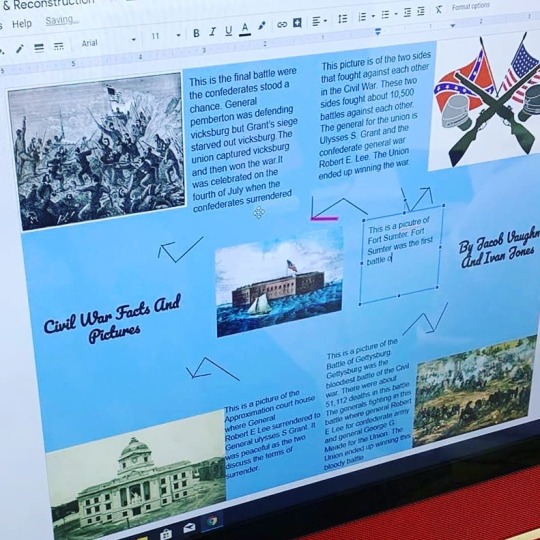
Reposted from @aseschooltech Today, 6th graders collaborated on interactive digital posters about an aspect of the Civil War or Reconstruction. Students dove into topics like Abraham Lincoln’s assassination, Jim Crow laws, or sharecropping and presenting them with photos, facts and links. @google @googleedu #digitalposters #interactivedigitalposters #digitallearning #edtech https://www.instagram.com/p/B74a5gQBT5P/?igshid=f8eti7d0404o
0 notes
Text
How markets plundered Free Software's best stuff and used it to create freedom for companies, not people
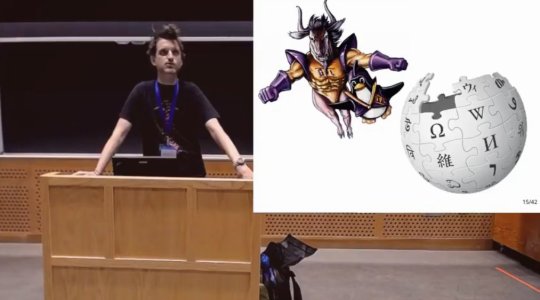
Bejamin "Mako" Hill (previously) is a free software developer, activist and academic with a long history of shrewd critical insights into the ways that free software, free culture and the wider world interact with each other.
In his keynote address to the annual Libreplanet conference, Mako traces the history of software freedom and how it changed when it met the forces of relentless commercialization and extraction.
Early free software advocates assumed that working on free software would be centralized and would be a kind of voluntary ideological project that would result in pay-cuts to programmers who wanted to ensure that users of programs got as much freedom as possible, and were willing to sacrifice to achieve this.
But markets discovered free software and turned it into "open source," figuring out how to create developer communities around software ("digital sharecropping") that lowered their costs and increased their quality. Then the companies used patents and DRM and restrictive terms of service to prevent users from having any freedom.
Mako says that this is usually termed "strategic openness," in which companies take a process that would, by default, be closed, and open the parts of it that make strategic sense for the firm. But really, this is "strategic closedness" -- projects that are born open are strategically enclosed by companies to allow them to harvest the bulk of the value created by these once-free systems.
So Android (GNU/Linux) is everywhere and Apple was forced by its users insistence on jailbreaking their Iphones to create the App Store and allow programmers to participate in its ecosystem. But both mobile platforms have figured out how to use strategic closedness to lock up users and developers and capture the value and assert control over the system.
Mako suggests that the time in which free software and open source could be uneasy bedfellows is over. Companies' perfection of digital sharecropping means that when they contribute to "free" projects, all the freedom will go to them, not the public.
This comes at the exact moment when the world is being devoured by software, and when software freedom is, more than ever, ineluctably bound up with human freedom -- in other words, it's a crisis of global and historic proportions.
Mako is calling on people to choose sides: to understand the moral dimension of software freedom, rather than its mere utilitarian benefits, and to commit themselves to human freedom.
https://boingboing.net/2018/06/21/digital-enclosure.html
152 notes
·
View notes
Photo

Statement to the #SSJQ Surviving Pioneers and Founders of Jamming, Hip Hop and Park Jams from ya girl #ProfessorShasiaQubilahMuhammad, MS, est. 1970 professionally known as #ProfessorEvaMarieKing, MS, est. 1970 @ToddNLanceFeurtado vs Uncle #GeorgieBranch rhyme/poem (Part 3 of 3) Before China had flooded the market with digital yo We was rocking to the beat in ster-re-er-o I had one in the front and one in the back I'm in the middle cause I got it like that What the phuck does all the reminiscing have to do with The Feurtados NYC Mr. Pendergrass changed the name to Ring Place B Because the 7 Crowns allegedly came through 1--6-9 and 118th Avenue and made that right on 170th to the beat one-time . But Mr. Pendergrass RIP, a block leader led the fight to rep the Blacks Who were first time homeowners up from sharecropping that's a fact This Feurtados, Seven Crown shit means nothing at all Without media training when Wendy Williams and 60 Minutes give you "the call" Because Lil Flip and G Money all on your d-i-c-k B That shit means nothing to a Media Specialist like me. To keep it all real and authentic B Uncle Georgie Branch is "The Original Black American Gangster," see. This is my, DJ Queen MC #ShasiaQubilahMuhammad complete statement for today Wednesday, December 11, 2019 in Tribeca, Manhattan, New York City USA. Permission to reproduce this video to still photograph is limited to editorial issues of newspapers and other regularly published periodicals and television news programming. ©Copyright 2019 S. Muhammad. All rights reserved. (at Tribeca Downtown New York) https://www.instagram.com/p/B57mplDJl2q/?igshid=xr6r08zgc5sp
0 notes
Photo
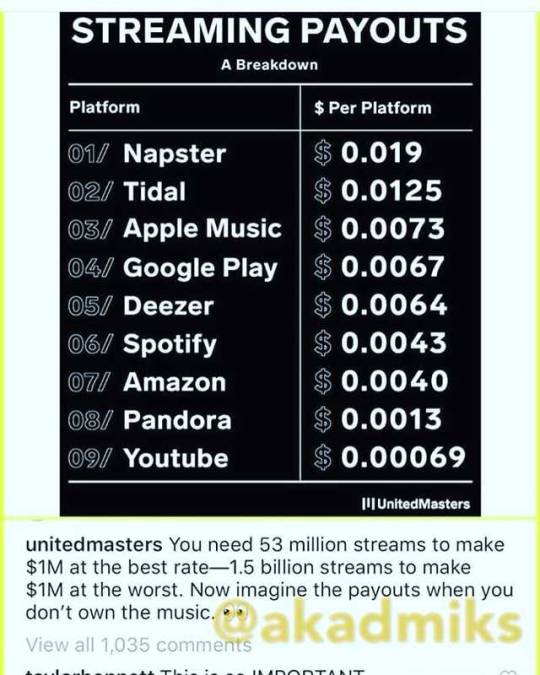
This is slavery by a different name. Share cropping in the new digital economy. The music industry was built off the share cropping model. Now imagine trying to make a living off these numbers and you not Jay Z or. Beyonce. #musicindustry2019 #newslavery #thedigitaleconomy #sharks #sharecropping #thedigitaldopeman #streamingservices #whokilledtheblackentrepreneur https://www.instagram.com/p/BwrVAh5hZcT/?utm_source=ig_tumblr_share&igshid=dgx3p4r4i17x
#musicindustry2019#newslavery#thedigitaleconomy#sharks#sharecropping#thedigitaldopeman#streamingservices#whokilledtheblackentrepreneur
0 notes